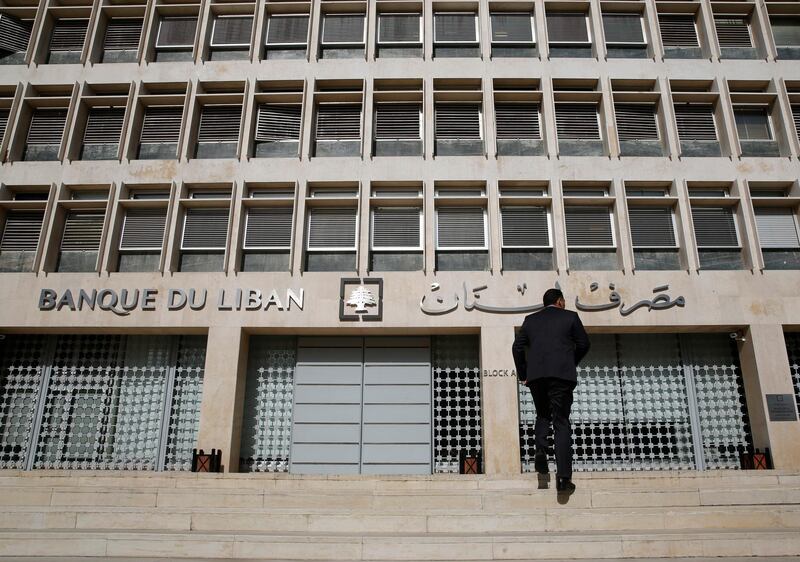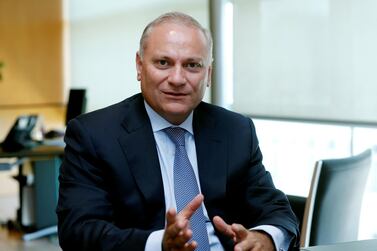Lebanon’s central bank governor instructed all lenders to raise their capital requirement by 20 per cent in two phases and, for the first time, ordered them to halt distributing dividends, as the regulator seeks to ease growing pressure on the financial system in the face of potential additional downgrades by ratings agencies.
Lebanese banks have to increase their capital requirements 10 per cent by the end of December and another 10 per cent by the end of June 2020, according to a central bank circular issued on Monday and seen by The National. The regulator briefed banks not to distribute dividends for the 2019 fiscal year, said the circular, which is effective immediately.
The measures come in the wake of rate cuts of Lebanon and its banks by Fitch and Moody’s Investors Service this year and in anticipation of additional downgrades if the deteriorating economic climate in the country, which led to the resignation of prime minister Saad Hariri last month, does not improve and liquidity risks worsen.
Last week, Fitch Ratings downgraded two of the country’s largest banks further into junk, or non-investment grade levels, while Moody’s warned Lebanon’s sovereign rating was in danger of a deeper downgrade within three months and placed its banks under review for a rate cut as well.
The actions of the agencies come amid nationwide protests demanding reforms and changes in the political system that has governed the country since the end of a 15-year civil war in 1990.
The protests are the largest Lebanon has seen since the assassination of former prime minister Rafik Hariri in 2005, which led to Syria withdrawing its troops from the country after a 29-year presence there. Citizens blame Lebanon's political elite for widespread corruption and nepotism, which they say contributed to the country accruing $86 billion of public debt equivalent to 150 per cent of gross domestic product debt.
The country saw an outflow of capital estimated at about $3 billion in the first nine months of the year, due to its deteriorating economic climate and heightened political tensions, according to the Institute of International Finance.
Capital inflows to Lebanon, largely in the form of foreign direct investment and non-resident deposits, have slowed sharply in the past 18 months, leading to a significant decline in official reserves and the emergence of a black market, Garbis Iradian, IIF’s Mena chief economist and colleagues wrote in a report released on Monday.
“This is a precautionary measure … to strengthen the core capital of the banks in this challenging environment,” said Nassib Ghobril, chief economist of Byblos Bank.
With protests continuing since October 17 amid the authorities’ failure to agree on durable fiscal measures and structural reforms, yields on 10-year dollar-denominated sovereign bonds of Lebanon have increased further to around 19 per cent.
“Prospects for recovery of non-resident capital inflows hinge on achieving political stability (formation of a new government) and implementation of deep reforms, which would support confidence both at home and abroad,” Mr Iradian said. Lebanese banks resumed operations last Friday after a two-week closure due to nationwide protests seeking reforms and changes in the governance of the country.
Lebanon’s economy has struggled since the start of the conflict in neighbouring Syria in 2011 and the political power sharing system, which represents various sects in the country, has held back successive governments from implementing required structural changes recommend by the International Monetary Fund. Lack of reform progress has hindered the country’s ability to unlock $11bn pledged by donors at an international conference in Paris last year.








